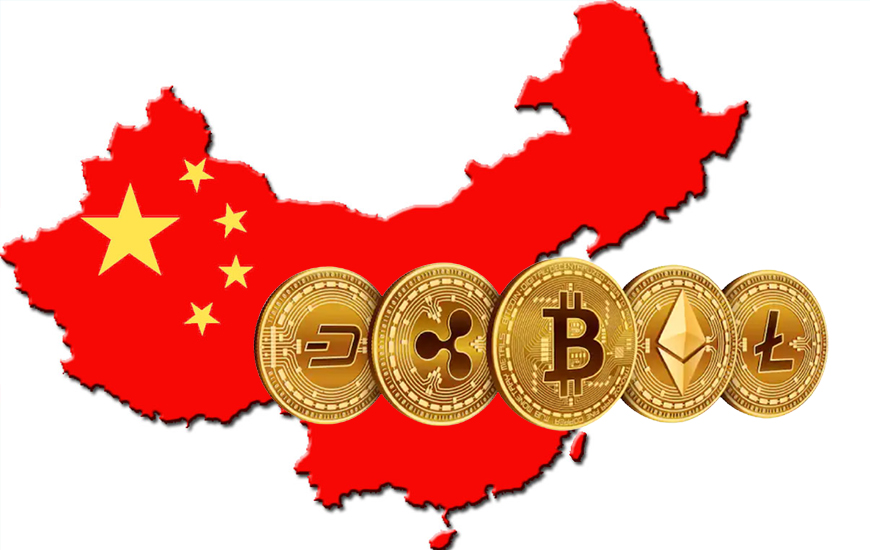- Following China’s recent setback on bitcoin, conventional cryptocurrency exchanges are rapidly exiting one of their most important areas. In addition, banks and payment gateways in China must stop providing services to bitcoin exchanges
- Analysts predicted that DEXs would rapidly overtake centralized exchanges in terms of trade volume when the platform went online
- The biggest DEXs are getting ready to welcome a slew of new crypto customers trying to get around China’s laws
Following China’s recent setback on bitcoin, conventional cryptocurrency exchanges are rapidly exiting one of their most important areas. In addition, banks and payment gateways in China must stop providing services to bitcoin exchanges. Beijing’s new laws, on the other hand, only apply to centralized exchanges, which are platforms owned by a single organization or corporation, such as Binance, Huobi, or KuCoin.
Trading continues on decentralized exchanges (DEXs), or platforms without a single governing organization. For years, crypto fans have extolled the virtues of decentralization, including censorship resistance, distributed governance, and shared earnings, while keeping their holdings on CEXs. Bancor introduced the world’s foremost market-maker which is automated in 2017, laying forth a vision for the future of decentralized trading and liquidity provision.
Analysts predicted that DEXs would rapidly overtake centralized exchanges in terms of trade volume when the platform went online. However, in the early years of decentralized trading, even popular assets like Ethereum were hampered by a lack of liquidity and significant slippage on deals. This meant that traders were too enticed by CEXs’ huge order books and obscene liquidity to go into DeFi.
During the 2020 DeFi summer, several hundreds of millions of dollars poured into DEXs like Bancor along with Uniswap, far outstripping liquidity witnessed on centralized platforms. Since then, DEX trade volume has gradually increased, but recent developments indicate that more users and trading volume may soon flock to DEXs.
The People’s Bank of China (PBOC), which regulates one of the world’s major cryptocurrency marketplaces, declared all cryptocurrency transactions to be “illegal financial operations” on Friday, September 24, 2021, adding that the crypto business seriously threatens the protection of public assets.
The announcement prompted a massive panic sell-off of Bitcoin, but investors quickly shifted their focus to decentralized assets, in a blink of an eye, significantly, DEX tokens, in expectation of a rise in DEX trading following China’s ban. For bitcoin pioneers who promote decentralization as the future of money, the sudden shift in opinion might be a watershed moment.
Decentralized trading protocols have seen substantial increases in trade activity at the end of last week. For example, over the 24-hour period between September 26-27, 2021, dYdX witnessed $4.3 billion in trade volume, putting it 15% ahead of Coinbase.
The biggest DEXs are getting ready to welcome a slew of new crypto customers trying to get around China’s laws. Observing the fast movement away from established exchanges in recent days, investors outside of China have obviously grasped the chance.
On Friday’s announcement, Uniswap’s token UNI jumped 32%, while Sushiswap jumped 20%. Uniswap is flirting with a breakout from its four-week average, while BNT – Bancor’s native token – has gained over 10% and has experienced significant strength since Friday, indicating that it is on the verge of a huge breakout. In contrast, Huobi, a centralized platform that was previously popular in China, has dropped by 40% in the last week.
Meanwhile, Bancor has announced intentions to release Bancor V3, a new version of its protocol. While the V3 version’s exact features have yet to be revealed, developers have stated that the next version would have a revolutionary approach to optimize liquidity provider rewards and boost trading volume. Bancor broke ground in 2020 with a one-of-a-kind solution that allows users to earn returns on volatile tokens while avoiding the danger of a significant permanent loss— a thorn in the side of DeFi customers. With the introduction of the much-anticipated V3 on the horizon, a BNT price increase is not ruled out.
Curve, a popular location to trade and stake stablecoins, 1inch, the primary DEX aggregator, and 0x are all native DEX tokens to keep a watch on in the coming weeks. Curve’s activity has increased as a result of its expansion to layer 2 Ethereum scaling solutions as well as rival layer 1 blockchains like Fantom.
Steve Anderson is an Australian crypto enthusiast. He is a specialist in management and trading for over 5 years. Steve has worked as a crypto trader, he loves learning about decentralisation, understanding the true potential of the blockchain.


 Home
Home News
News










